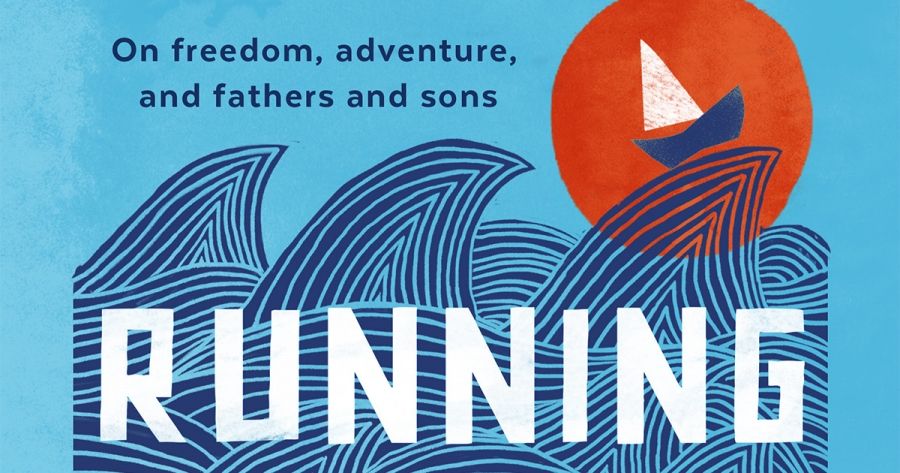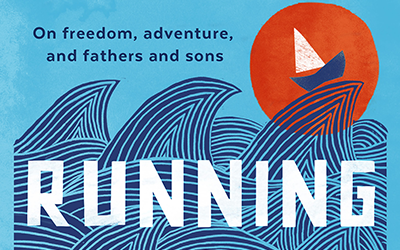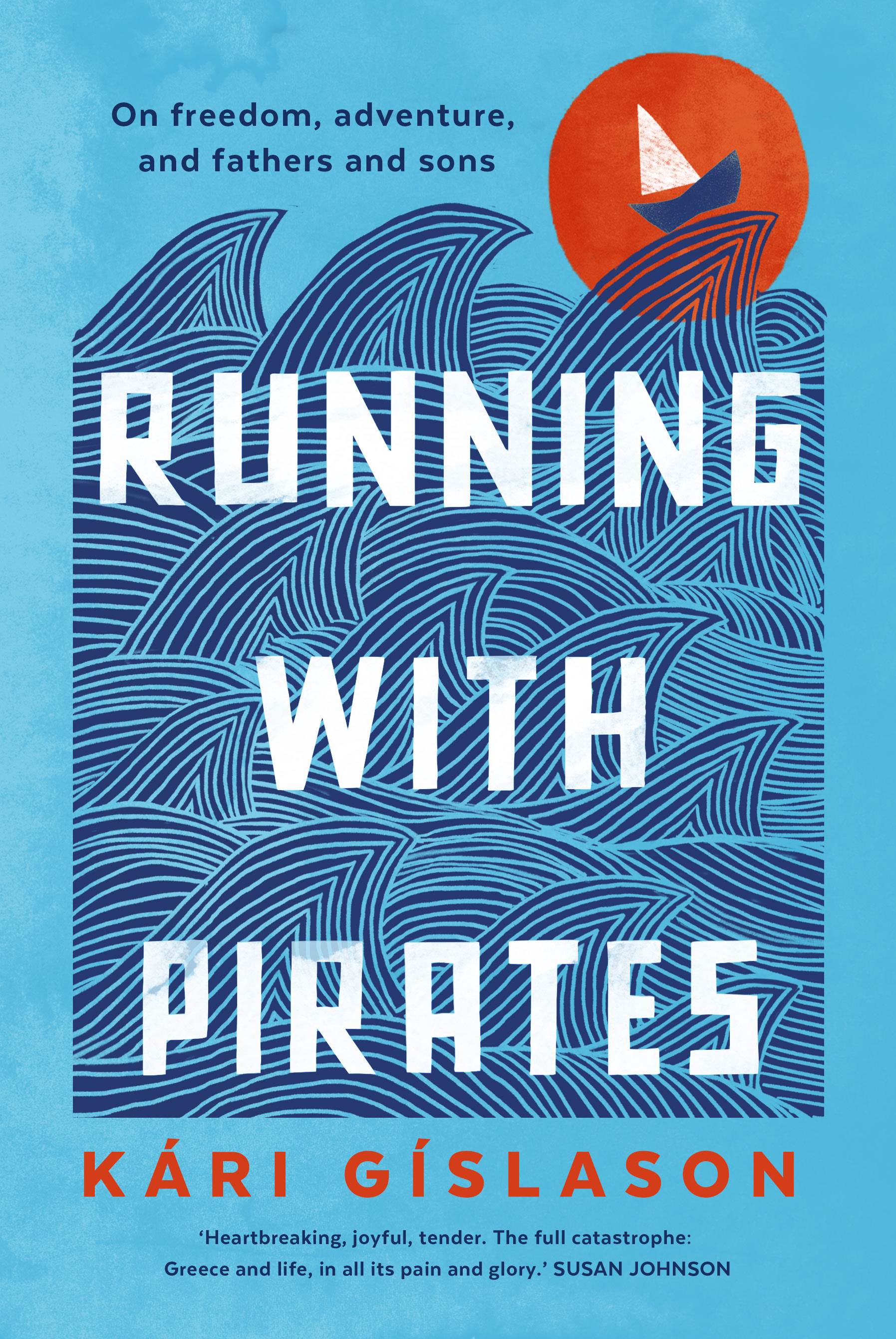
- Free Article: No
- Contents Category: Memoir
- Review Article: Yes
- Article Title: His father’s eyes
- Article Subtitle: A memoir of roads not taken
- Online Only: No
- Custom Highlight Text:
Kári Gíslason’s memoir of escape and adventure during his early adulthood begins in transit: he is freshly eighteen, ‘sleeping on the floor next to hot air vents at the back of a grand old ferry that connected Brindisi in the heel of Italy with Athens’. Kári is travelling with an ‘often-jolly, sometimes sarcastic’ Scotsman named Paul, and their relationship has begun to fray. Worse, they are low on money, which means their travels and ‘freedom’ may soon be over. Gíslason notes: ‘We were unemployable. I was sickly thin, and my hair past my shoulders and knotted. Paul always looked like he’d just woken up.’ Both are searching for ways to forget their troubles and orient themselves as they take the first steps into manhood, but the pressures that come with such a task have left them feeling oppressed and alienated.
- Featured Image (400px * 250px):

- Alt Tag (Featured Image): Shannon Burns reviews ‘Running with Pirates: On freedom, adventure, and fathers and sons’ by Kári Gíslason
- Book 1 Title: Running with Pirates
- Book 1 Subtitle: On freedom, adventure, and fathers and sons
- Book 1 Biblio: University of Queensland Press, $34.99 pb, 224 pp
- Book 1 Cover Small (400 x 600):

- Book 1 Cover (800 x 1200):

Early in the book, Gíslason signals that his travels took place in the aftermath of a painful rejection. Kári is a ‘love child’ who sought out his father just before adulthood, arriving in a moment of developmental need, when everything was intense and urgent and uncertain, but his hopes were badly disappointed. He experienced refusal, instead of acceptance and love, and is left to grapple with the legacy of a likeness that has no significance. Kári glimpses his father’s face in his own reflection, but that is the limit of their relationship.
In the skies and waters of Corfu, Kári sees a blue that was ‘eternal but was also the very same blue I’d seen in my father’s eyes, and in my own’. The colour triggers a yearning for belonging, and he thinks to himself: ‘I will stay here for the rest of my life.’ The symbolic connection between Corfu and the absent father is strong from the outset, and only increases when Kári and Paul meet an enigmatic taverna keeper nicknamed ‘the Pirate’, who treats them like his sons. The Pirate is many things: ‘a host, a reveller, a cook; kind and nostalgic, violent, sexist and foul-mouthed, accepting. On the best days, he offered friendship; on the worst, he was terrifying ...’ According to Gíslason, the Pirate is exactly what he needed at that moment in his life. He is also essential to the machinery of the memoir: the Pirate’s past life, his true motivations, his business dealings, and his status in the village are sources of mystery that provide necessary suspense throughout the narrative. He is its vital force.
Running with Pirates oscillates between the time spent in Corfu in 1990 and the time spent remembering Corfu in 2022. One is the story of a fatherless young man trying to find himself in a small village on a foreign island, and the other is of a writer who returns to Corfu, as a father, in an effort to decipher the significance of that earlier time in his life. He does this with the help of his family, particularly his teenage boys.
The more recent strand of story explores the realities of fatherhood in the modern world. Gíslason believes that he has been an anxious father, ‘overly concerned’ about his sons’ safety. He ‘worried obsessively’ about them being hurt when they were small and struggles to allow them to take risks as teens. Running with Pirates documents his attempt to ‘let go’, to allow his sons the space he had as a young man, to face the world unsupervised, without sacrificing the paternal connection. He attempts to forge this new relationship via personal stories, which he sees as vehicles of transmission: his experiences – including his time with the Pirate – are converted into narrative and claimed by his boys, who will use them for their own purposes. Ideally, they will be instructive.
Not much happens in Runing with Pirates. A budding romance is unconsummated; moments of seeming peril resolve safely; friendships strain but never break; there are no great sins or passions or epiphanies in the moment, and dangerous adventure is avoided. The most troubling episode, for the author, involves the slaughter of a pig at the Pirate’s hands. Kári is sickened by the man’s easy brutality with the animal and feels that he is being drawn into something that he wants no part of: ‘How awful to be led along like this.’ This episode is infused with potential malice, suggesting that the Pirate may be similarly brutal with people when it suits him. When he asks Kári and Paul to sail with him to Brazil on secret business, Kári fears that he is ‘being readied for slaughter’, and this paranoia prompts his decision to leave the island.
Gíslason’s prose is clear and straightforward. He evokes a strong sense of place and is wonderfully attuned to the sensitivities of early adulthood, but the roads not taken have the most appeal, and what might have been overshadows the reality. Kári is sensible to avoid sailing to Brazil as one of the Pirate’s crew (and to thereby escape what may have been illegal and dangerous adventures), but it’s an unfortunate decision for a future memoirist. Instead of ‘running with pirates’, the hero runs for home, and the reader is left pining for a more compelling adventure. The coded message to his sons is clear: go out into the world, embrace new experiences, but always be careful and alert to dangers, real or imagined, and don’t take foolish risks. Gíslason observes that, ‘[b]roadly speaking, our generation seemed very motivated to provide safety, whereas our parents had been less concerned about it.’ Running with Pirates remains true to that cautiousness, even as it frets over it.


Comments powered by CComment